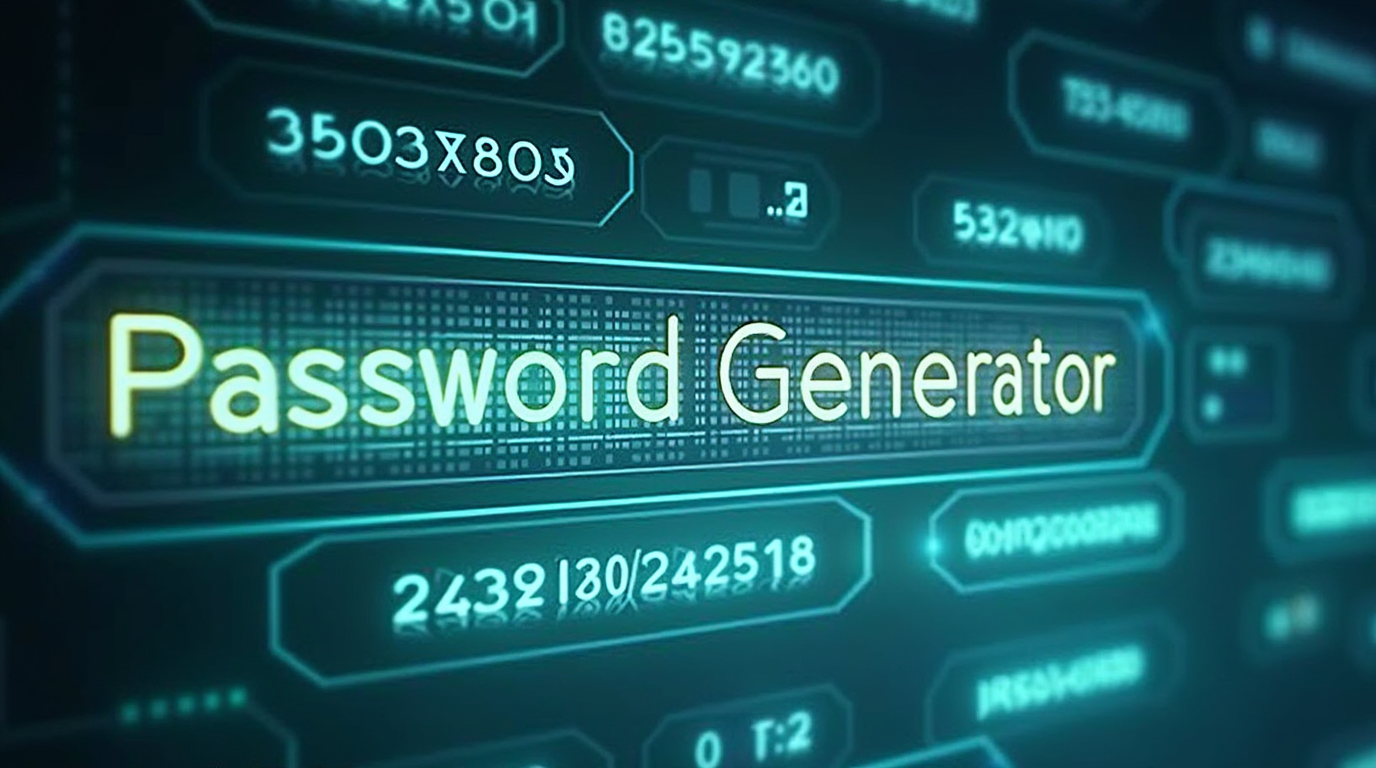
26
How to Generate Strong Passwords with a Password Generator
Learn how to create strong, secure passwords using a password generator tool. This guide explains the importance of strong passwords and how to use a password generator to protect your online accounts.
In today's digital age, securing your online accounts has never been more important. Whether you're signing up for a new social media account, shopping online, or accessing your email, using a strong, unique password is essential to protect your personal information.
But with so many accounts to manage, coming up with complex passwords for every service can be overwhelming. That's where a Password Generator comes in. A password generator is a tool that creates strong, random passwords that are difficult to crack.
In this blog post, we'll explore the importance of strong passwords, how a password generator works, and how you can use it to create secure passwords for your accounts.
Why Strong Passwords Matter
A strong password is one of the first lines of defense against cyber threats like hacking and identity theft. Here's why strong passwords are crucial:
1. Protect Personal Information
Many online accounts store sensitive information, such as your email, banking details, or personal identification. If a hacker gains access to your account through a weak password, they could steal your data or even commit fraud.
2. Prevent Unauthorized Access
Weak passwords are easy for hackers to guess or crack using brute force attacks. Simple passwords, like "123456" or "password," are easily guessed and can give attackers quick access to your accounts.
3. Avoid Data Breaches
In recent years, we've seen many major data breaches that have compromised user passwords. Even if you choose a strong password, using the same one for multiple accounts can lead to a chain reaction of breaches if one service is compromised.
How a Password Generator Works
A Password Generator creates a password for you by using a random selection of characters. These characters may include:
- Uppercase and lowercase letters
- Numbers
- Special characters (e.g., @, #, $, %, etc.)
By including a wide range of characters, a password generator creates complex passwords that are extremely difficult for attackers to guess or crack.
Many password generators allow you to customize your password based on certain criteria:
- Password length: You can specify how long you want your password to be (e.g., 12 characters, 16 characters).
- Character types: Some tools let you exclude certain characters or choose to include specific ones (like numbers or special characters).
- Customizable strength: Depending on your needs, you can create a password that balances complexity and usability.
How to Use a Password Generator
Using a password generator is easy. Here's a step-by-step guide:
1. Select a Password Generator Tool
There are many online password generators available for free, such as:
- LastPass Password Generator
- 1Password Password Generator
- Bitwarden Password Generator
- Dashlane Password Generator
2. Set Your Password Criteria
Once you’ve chosen a tool, you can customize your password according to your preferences. Most tools allow you to specify:
- The length of the password (e.g., 12, 16, or more characters)
- Whether to include numbers, symbols, and both uppercase and lowercase letters
- Any additional options such as avoiding similar characters (like "O" and "0")
3. Generate Your Password
Click the "Generate" button to create a strong, random password. The password generator will provide you with a unique, secure password.
4. Copy the Password
Once your password is generated, you can copy it to your clipboard and paste it into the password field of the service you're signing up for.
5. Store the Password Safely
Because strong passwords are hard to remember, it’s important to store them securely. You can use a password manager to store and manage your passwords safely. A password manager is a tool that encrypts and stores your passwords, so you don’t have to remember them.
Best Practices for Using a Password Generator
To maximize the security of your online accounts, follow these best practices when using a password generator:
1. Use a Unique Password for Each Account
Don’t reuse passwords across multiple sites. A password manager can help you manage and organize your passwords to avoid reusing the same one.
2. Set a Strong Password Length
Aim for passwords that are at least 12-16 characters long. Longer passwords are harder to crack through brute force attacks.
3. Mix Different Characters
Use a combination of uppercase and lowercase letters, numbers, and special characters. This makes the password much more difficult for attackers to guess.
4. Enable Two-Factor Authentication (2FA)
Wherever possible, enable two-factor authentication (2FA). 2FA adds an extra layer of security by requiring a second form of identification, such as a code sent to your phone, in addition to your password.
Conclusion
A Password Generator is a simple yet powerful tool to create strong, secure passwords for your online accounts. By using a password generator, you can protect your personal information, avoid unauthorized access, and reduce the risk of data breaches. Combined with other best practices, such as using unique passwords and enabling two-factor authentication, a password generator is an essential tool for maintaining online security.
Remember, a strong password is your first line of defense against hackers, so don’t overlook its importance. Start using a password generator today and keep your accounts safe!
Contact
Missing something?
Feel free to request missing tools or give some feedback using our contact form.
Contact Us